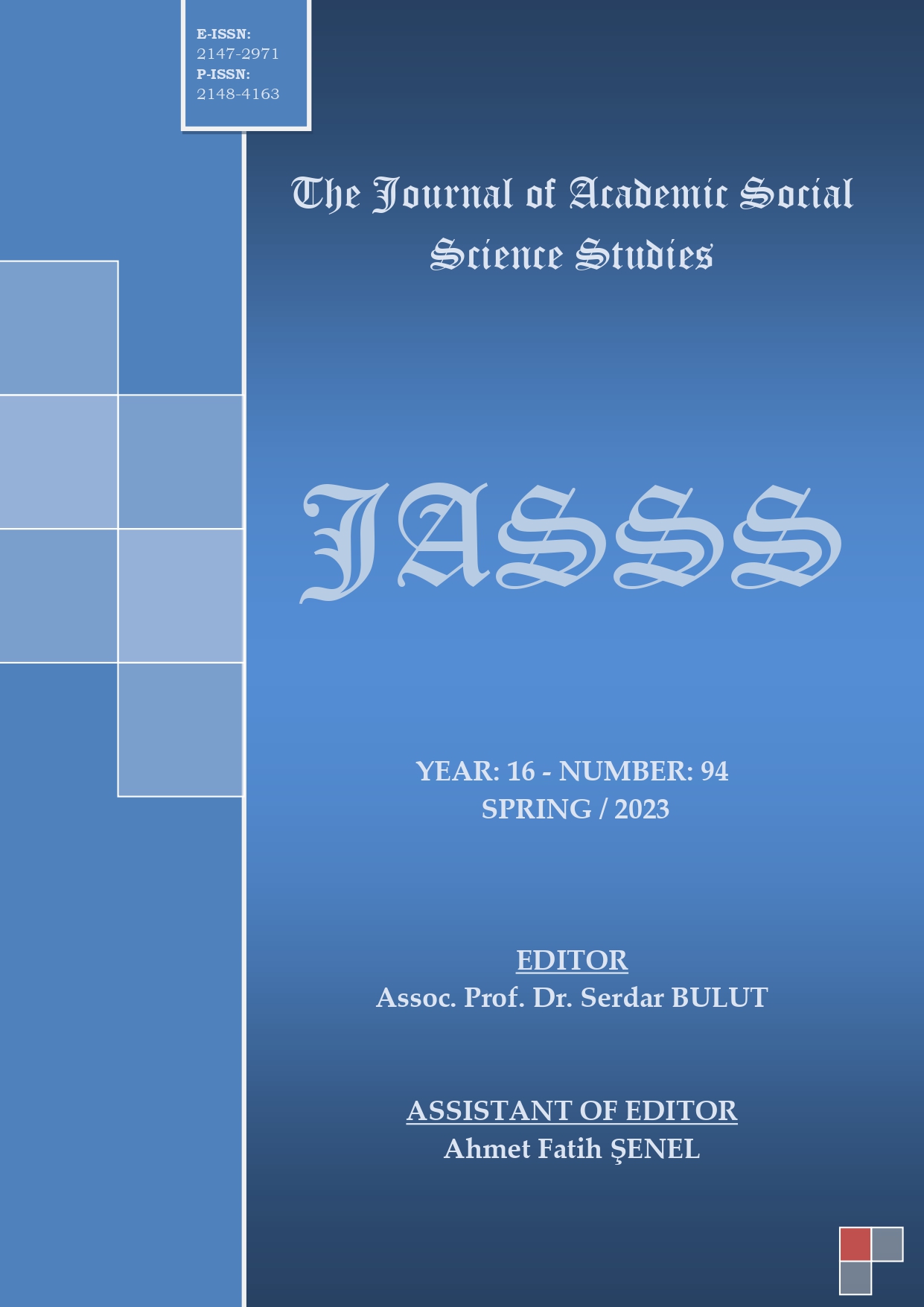Author :
Abstract
Edatlar, konuşma esnasında ifade edilecek manaya bağlı olarak farklı anlamlar oluşturmak maksadıyla başvurulan bir araçtır. Cümlenin oluşturulması amacıyla isim, fiil ve cümleler arasında bağlantı kurarak fiillerin anlamlarını isimlere aktardıkları gibi isimlerdeki anlamı başka isimlere de aktarırlar. Her edatın cümle içerisinde belirli bir fonksiyonu bulunmaktadır. Ancak edatların çoğu asıl maksadı dışında birçok anlam ifade edecek şekilde de kullanılabilmektedir. Asıl maksadı dışında birçok anlam ifade edecek şekilde kullanılan edatlardan birisi de asıl görevi istisna manası ifade etmek olan “إلا” edatıdır. Daha çok cümlede belirtilen hüküm açısından bir ayrıklık ilişkisi meydana getirerek kendisinden sonraki kısmı önceki hükmün dışında tutmak maksadıyla kullanılan “إلا” edatı bu işlevi dışında farklı birçok fonksiyona sahiptir. Cümle oluşumunda geniş bir kullanım alanı olan “إلا ”edatı istisna anlamının yanı sıra atıf harfi olması, idrâb ve istidrâk anlamlarını içerecek şekilde kullanılması, hükmü güçlendirme maksatlı zâid olarak kullanılması, sıfat manası ifade etmesi gibi birçok maksatla kullanılabilmektedir. Ancak ihtimal dahilinde olan bütün anlamlardan ziyade sadece bir anlam ile sınırlı tutulabilmesi bağlam vasıtasıyla anlaşılmaktadır. “إلا” edatını hem nahiv hem de belâgat açısından ele aldığımız bu çalışmada edat bütün yönleriyle incelenerek kapsamlı bir şekilde edatın anlam, işlev ve özellikleri ortaya koyulmuş ifade edebileceği muhtemel anlamlar kapsamlı bir şekilde verilmiştir.
Keywords
Abstract
Prepositions are a tool used to create different meanings depending on the meaning to be expressed during speaking. They transfer the meanings of the verbs to the nouns as well as transfer the meanings of the nouns to other nouns by establishing a connection between the noun, verb and sentences in order to form the sentence. Each preposition has a specific function in the sentence. However, most of the prepositions can be used in a way that means many things other than their main purpose. One of the prepositions used in a way that has many meanings other than its main purpose is the preposition "إلا", whose main task is to express the meaning of exception. The preposition "إلا", which is mostly used in order to create a difference in terms of the clause specified in the sentence and to keep the next part out of the previous clause, has many different functions apart from this function. The preposition "إلا", which has a wide usage area in sentence formation, can be used for many purposes such as being a reference letter, using the meanings of idrâb and istidrâk, using it as a zaid to strengthen the judgment, expressing the meaning of an adjective, as well as the meaning of exception. However, it is understood through context that it can be limited to only one meaning rather than all possible meanings. In this study, in which we discussed the preposition "إلا" in terms of both syntax and rhetoric, the preposition was examined in all its aspects, and the meaning, function and characteristics of the preposition were comprehensively presented, and the possible meanings that it could express were given in a comprehensive manner.





